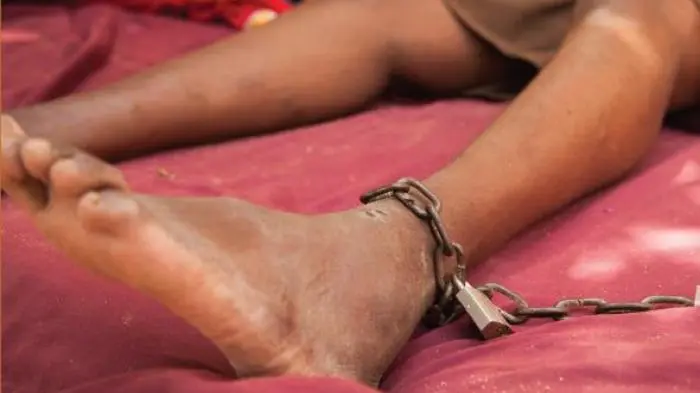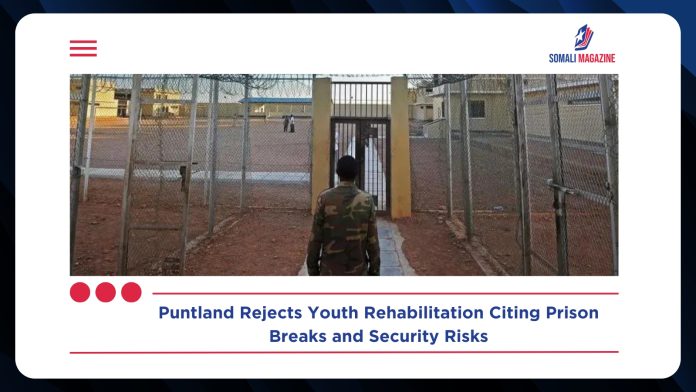Facebook Twitter (X) Instagram Somali Magazine - People's Magazine
The government of Puntland has ruled out placing militant youth in rehabilitation programs, citing repeated prison breaks and security breaches as justification for keeping former Al-Shabaab and ISIS fighters in high-security detention. Justice Minister Mohamed Abdiwahaab Ahmed told the Puntland Parliament that the region lacks the infrastructure and safeguards necessary to house such individuals outside of fortified prisons, warning that many of the detainees are highly trained and pose a serious threat to public safety.
“These are not simply misguided youths,” Ahmed said during a parliamentary session. “They are militarily trained operatives. Some have killed over 20 people or can build explosives. A single one can overpower multiple armed guards. They cannot be trusted in normal homes or open centers.”
The minister’s remarks followed a parliamentary visit to several prisons across Puntland, where lawmakers encountered dozens of young detainees affiliated with Al-Shabaab and ISIS. While some MPs expressed concern over the lack of tailored rehabilitation programs for individuals under 25, the government maintained that past security failures have made such initiatives untenable.
One of the most cited incidents occurred in February 2018, when at least 10 former Al-Shabaab fighters escaped from a rehabilitation center in Garowe. The escapees, many of whom had been captured during the 2016 battles in Suuj and Garmaal, reportedly accessed keys and fled due to lax supervision. The incident drew sharp criticism from civil society groups and raised doubts about the viability of non-secure reintegration programs.
More recently, Galkayo Central Prison—one of Puntland’s most fortified facilities—has faced multiple security breaches. In May 2025, armed militants launched a coordinated assault on the prison in an attempt to free convicted Al-Shabaab operatives. It was the third such incident since 2022, following a deadly raid earlier in the year and an August 2024 escape in which four death-row inmates vanished under unclear circumstances.

Puntland officials argue that these incidents underscore the risks of housing militant youth in open or semi-secure environments. They insist that until proper infrastructure and oversight mechanisms are in place, the only responsible course of action is to detain such individuals in maximum-security prisons.
This hardline stance diverges sharply from the approach advocated by international partners and UN agencies, which have long promoted rehabilitation and reintegration for captured or defecting fighters—especially juveniles. Organizations like UNICEF and the UN Office of the High Commissioner for Human Rights have urged Somali authorities to treat children associated with armed groups as victims, not criminals, and to provide them with pathways to rejoin society.
Critics argue that Puntland’s policy risks violating international human rights standards and undermines long-term peacebuilding efforts. They warn that indefinite detention without rehabilitation could further radicalize detainees and fuel resentment among marginalized communities.
Despite the criticism, Puntland remains firm in its position. Minister Ahmed emphasized that the safety of the public must come first and that any future rehabilitation efforts must be preceded by significant investment in secure facilities, trained personnel, and community-based monitoring systems.
As Somalia continues to grapple with the challenge of reintegrating former militants, Puntland’s approach highlights the tension between security imperatives and human rights obligations. Whether the region’s strategy will yield long-term stability or deepen existing divides remains to be seen.

